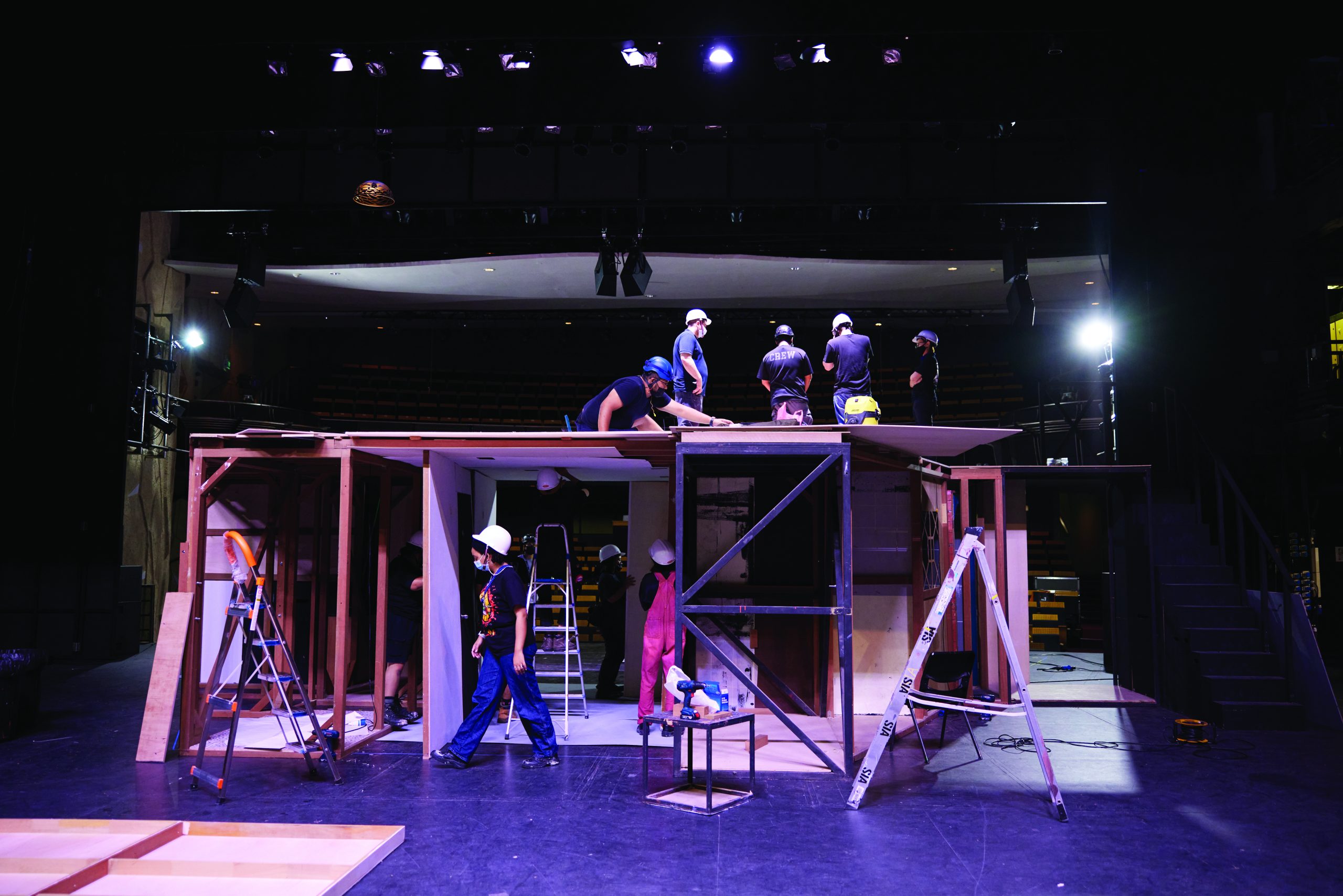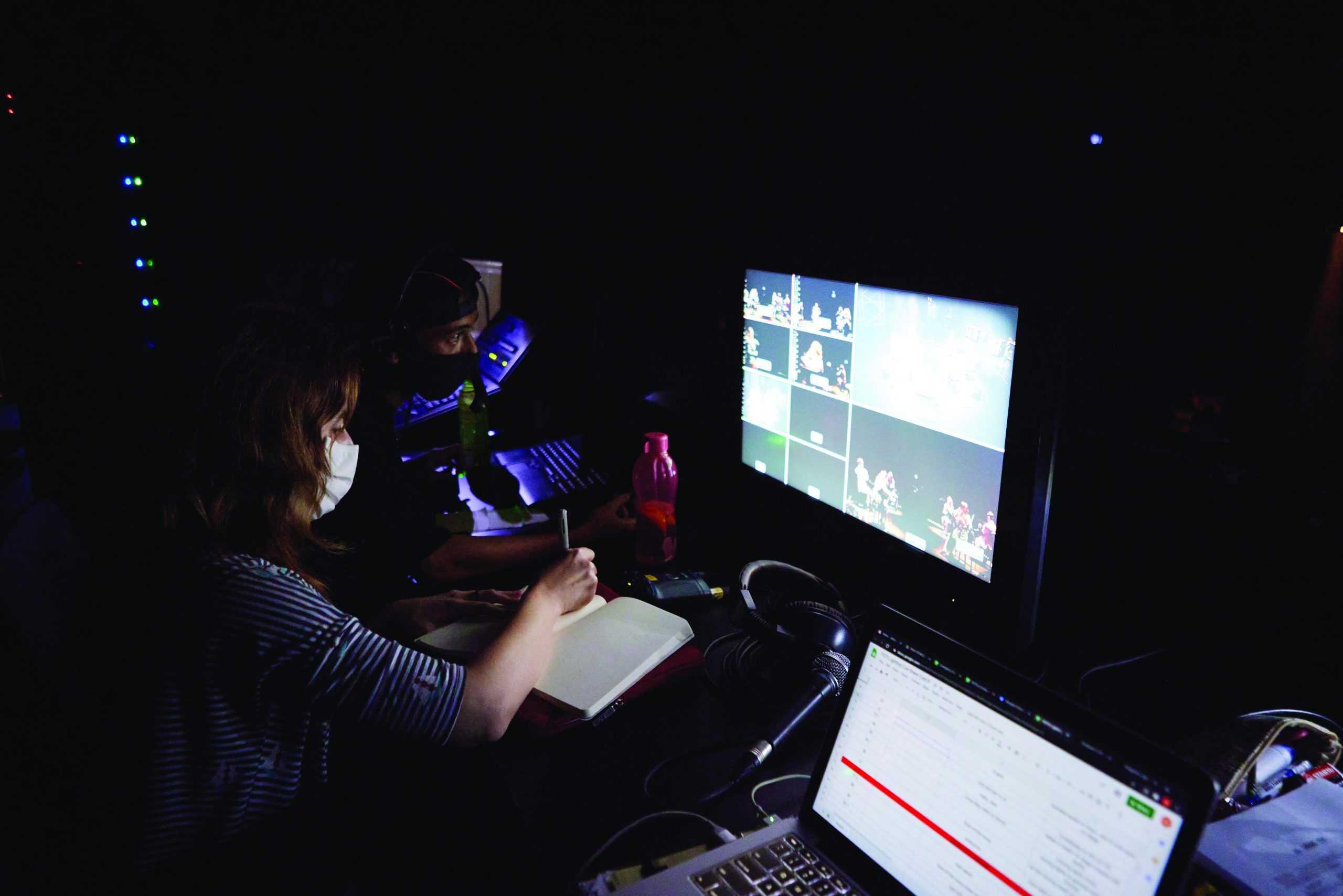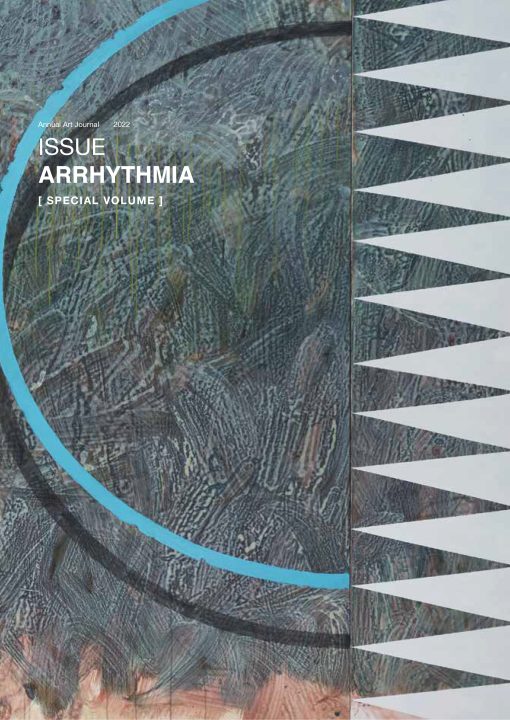Theatre has traditionally been delivered by a company—a group of performers, theatre production and front of house staff—sharing a physical space with an audience. The COVID-19 pandemic meant that, in a heartbeat, theatre-makers and patrons were unable to do the very thing that makes theatre what it is. How did theatre-makers themselves respond to this deep challenge? What effects did it have on theatre-making, and the theatre production industry that supports it? Bringing together leading theatre production professionals and academics from Southeast Asia, together with students from LASALLE College of the Arts in Singapore, and University of Philippines Diliman—Department of Speech Communication and Theatre Arts, this panel deliberated on how artists, no matter what the challenge, always find ways to share their work. This has meant a pivot to creating work that can be shared with an audience digitally and asynchronously.
The panel included members from industry and academia: Juliet Chia, deputy artistic director of Singapore Repertory Theatre; Kenny Wong, head of technical production at the Esplanade; Olivia Nieto, assistant professor at the University of Philippines Diliman, Department of Speech Communication and Theatre Arts; Petrina Dawn Tan, an award winning set designer, lighting designer and scenographer in Singapore; Pete Andrei V. Fabricante, student at University of Philippines Diliman, Department of Speech Communication and Theatre Art; Muhammad Nurfadhli Bin Jasni student of Diploma in Technical and Production Management at LASALLE in Singapore; and myself, Michael Budmani, Programme Leader, Diploma in Theatre Production and Management and Diploma in Technical and Production Management.
The virtual panel discussion took place whilst Singapore was enjoying relatively low case numbers and mortality rate, with theatres cautiously reopening. In contrast, the Philippines was still deep into a series of lockdowns and increasing numbers. In the face of COVID-19, in both countries the theatre industry has had to immediately pivot to find new ways of creating and sharing theatre work with their audiences, without the need of sharing a physical space. Theatre production educators have had to similarly pivot and alter their modes of delivery. This disruption has created and enabled new ways of theatre-making, creating an evolution in both the industry itself and programmes of study that are designed to prepare the theatre makers of the future. The view of all members of the panel was that no theatre production student should now graduate without a strong portfolio of digital skills, and the knowledge required to be part of a team that may need to film or stream a show, for asynchronous delivery. This has brought with it new opportunities.
In what follows, Muhammad Nurfadhli Bin Jasni, the student from LASALLE who was part of the panel, offers his reflection about the experience and what he has faced as a young member of the professional industry in Singapore. Fad has a very strong set of media skills and is now highly in demand in a Singapore theatre industry that now needs these skills amongst its theatre-makers.

LASALLE Diploma in Theatre Production and Management students perform
Homesick by Alfian Sa’at, 2021
Muhammad Nurfadhli Bin Jasni
I was very grateful to be part of the panel discussion on the The Future of Technical Theatre in Southeast Asia as I got to meet theatre practitioners and theatre students from Singapore and the Philippines, and talk about how they were handling the pandemic situation and also how they were surviving throughout this phase. There was a shared understanding that we are living in a new normal, thus we have to take or make use of the opportunities in front of us and create magic and miracles from the current situation. Ever since the pandemic started in early 2020 there were so many restrictions that we have had to follow and it has affected most of us around the world. In Singapore, we were locked down for about two and a half months. Theatre shows had to be cancelled. I was on my final production of the semester as a Year 2 student, and half way through the process, we had to call it off because of the lockdown. Everyone was affected and found themselves jobless. I remember that the seniors graduating from the programme that year were quite worried back then as the lockdown had caused them to lose jobs for a few months and a lot of events had to be called off.

LASALLE Diploma in Theatre Production and Management students perform
godeatgod by Haresh Sharma, 2021
In summer 2020, in preparation for my final year of study, I had arranged to undertake an internship in the UK with Timothy Bird who is a video designer in Royal Academy of Arts, to whom I had been introduced by Gillian Tan, a Singaporean lighting and video designer based in London, who is head of video at Royal Academy of Dramatic Art and an alumni of my programme at LASALLE. The insecurity that this created was still with me as I come into my final year at LASALLE. I was quite worried too, thinking “What if this pandemic will drag till next year or few years ahead?” and “How are we going to do our internship?” Keeping my options open, I met with a multimedia designer for ‘ILight’, ‘Flexi’ to whom I was introduced by one of my graduating seniors in 2019.
I completed a three-week internship with him just prior to the start of Year 3 of my studies. Although brief, it was very helpful, as I gained work as a multimedia operator for a commercial film shoot at Changi Airport. This was an excellent launchpad into my final year of study.
For the first few weeks of lessons in my final year, we mostly had our lessons through Zoom. It was a different experience for us as we normally work in a very hands-on environment. Zoom lessons were a new thing for us, but we tried hard to adapt to it. As the situation improved in Singapore, slowly we transitioned to having class in our three LASALLE theatres—Flexible Performance Space, Creative Cube and Singapore Airlines Theatre—but split into smaller groups to accommodate safe working practices and safe distancing. We all preferred face-to-face delivery, and found that online delivery was not as engaging. So much of the content of our theatre-making programme does not lend itself obviously to Zoom delivery and it can be difficult at times to keep focus during long Zoom sessions. Working on productions commenced a few weeks later despite most of us having to work from home. Those who needed to have access to the scenic or costume workshops had to work to safe distancing protocols—one metre between each person and masked at all times.
During the panel discussion, a guest student from the Philippines who is also studying Theatre Production, shared their experiences of the pandemic with COVID-19 cases being so bad in Philippines that all class activity was moved, and had remained online. Their lecturer had to find alternative ways to make their lessons engaging. It was quite sad to hear this as in Singapore we still had the opportunity to work on productions in school and have hands-on lessons, albeit with COVID-19 management measures in place. On the panel I shared how I made use of my time during the lockdown by going to online classes to upgrade my skills as a multimedia designer, with such tools as Adobe software and CAD. These will be so useful for my future practice. Taking the opportunity to train in these new skills was a productive way to use the time that I had at home during lockdown. The lesson for me has been to look for opportunities to try something new.
I am so very thankful that I have been able to still be able to do what I love during this pandemic. I believe that there are elements of COVID-19 theatre-making that will remain as part of ‘the new normal’. I was fortunate to work with leading Singaporean video designer Brian Gothong Tan, who was my mentor for LASALLE’s BA Acting production of “godeatgod.”1 Now graduated from LASALLE, I am working in the industry as a freelancer in multimedia design and set design. Alongside that, I work as a freelance camera operator for theatre shows—something that would not have been a requirement pre-pandemic. The skills that I learned during the pandemic have definitely helped me to gain new job opportunities. Who knows, one day I might become a director of photography in the film industry! I will just keep my options open and trust the process.
Panel Conclusions
History has repeatedly shown that whatever the challenges artists always find a way to make work and to share their work. COVID-19 is but another example. The pandemic had taken away a core element of traditional theatre-making—that of theatre-makers being able to share their work with their audience in a shared space. Take that away and theatre-makers were always going to find alternative methods of creating and sharing work. It is an imperative. This imperative has created, and continues to create disruption and evolve theatre-making. Whatever the new normal is going to be, it is not going to revert back to pre-pandemic theatre-making nor the skill-sets that supported it. Evolution in art never stops, nor should it. We are just at the beginning of seeing where this exciting digital evolution in theatre-making will take us and how much further it will enable collaborative opportunities. This evolution will also inform a curricular evolution in Theatre Production tertiary education.


